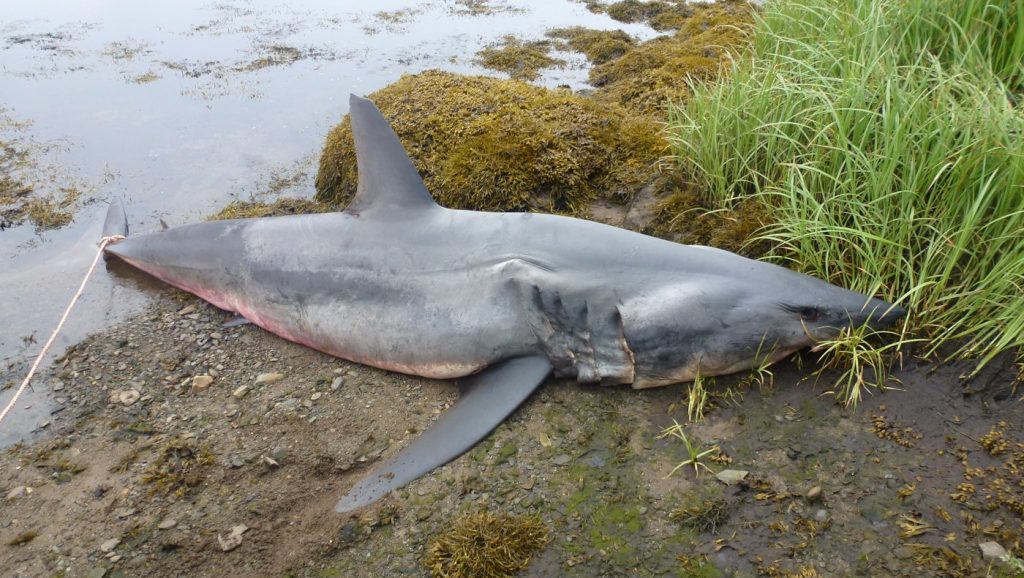On the weekend, a significant discovery was made along the eastern shore of Nova Scotia when the body of a large adult shark was found. The Marine Animal Response Society, based in Halifax, identified the shark as a 3.6-metre shortfin mako, which was located near Port Dufferin, approximately 140 kilometres east of Halifax. This incident raises questions about the circumstances surrounding the shark's death, as reported by Executive Director Tonya Wimmer.
Wimmer emphasized that it is uncommon to encounter shortfin makos in such close proximity to the shore. These sharks are typically known to inhabit warmer offshore waters, making their presence near the coastline particularly striking. This finding could indicate changes in shark behavior or environmental conditions, warranting further investigation.
The shortfin mako shark, a species recognized for its remarkable speed, can reach lengths of up to 3.9 meters. Characteristics of this shark include the ability to swim at incredible speeds of up to 68 kilometres per hour, which makes it one of the fastest sharks in the ocean. Despite their impressive swimming capabilities, the precise reasons behind the unfortunate demise of this particular shark remain elusive.
The discovery coincides with ongoing discussions about shark populations in Nova Scotia's waters, including an apparent increase in the sightings of great white sharks. Related articles have explored the implications of this rise and the reasoning behind more frequent sightings of white sharks in the region. Experts suggest that these trends may not necessarily reflect a cause for concern but rather a shift in the ecological landscape of the northwest Atlantic.
In addition to the alarming find of the shortfin mako, there are other reports indicating a possible revitalization of shark and ray populations in the Northwestern Atlantic, as suggested by recent studies. These factors contribute to a complex interplay of marine life dynamics that researchers are striving to understand further.
As marine wildlife experts continue to investigate the death of the discovered shark, the public remains intrigued by the potential connections to broader ecological changes. The findings raise awareness about the importance of marine conservation and understanding the habitats of such elusive creatures. The shortfin mako, while fast and formidable, now serves as a focal point for discussions on marine life in Nova Scotia and the intricate relationships within ocean ecosystems.
The incident underscores the need for ongoing research and monitoring of shark populations and marine environments, particularly as climate changes and human activities increasingly affect these delicate ecosystems.











